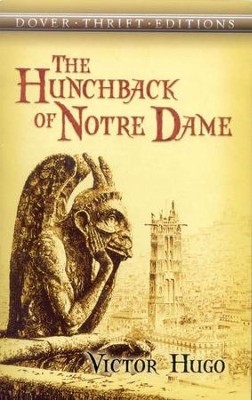

Whether he was right to trace every social ill to the Middle Ages is neither here nor there. Every author should have a point of view but Hugo has an agenda. Novikoff, Rhodes College) That’s the nub. And I found this: “Hugo was determined to trace current social and political problems back to their medieval roots, and to achieve the maximum effect he must carefully embed his tale within a painstaking reconstruction of medieval Paris, its buildings and its public.” (From: Medievalism and Modernity in Victor Hugo’s Hunchback of Notre Dame, Alex J. I couldn’t put my finger on it so I started perusing critical essays online.

But as much as I enjoyed the story-with two exceptions we’ll get to later-there was something that bugged me throughout the telling. And I no longer have to look puzzled when friends refer to me as “Quasimodo”. One of our iconic stories is now safely ensconced in my mental arsenal. Historical fiction is rarely anywhere near my wheelhouse, but when it’s a revered classic-or, like the Aubrey/Maturin series, so historically accurate that it almost is history-I make an exception. You may be surprised at how much it changes your reading.I'll be honest. So fight back against everything you've ever heard about how Quasimodo being the hero of this book. In reality, the novel is more about a whole cast of characters whose plots intertwine. After reading the book, though, you might find yourself scratching your head at how small a role Quasimodo actually plays in the greater scheme of things.īut if we take the original French title, we see the cathedral as the focal point for all of the action that revolves around it.

Therefore, we're more inclined to see Quasimodo as the main character.

The Hunchback of Notre-Dame implies, naturally, that the story is about a hunchback. Doesn't have quite the same ring to it, does it? Hugo apparently disliked the English title ( source), though we can see why more people might be interested in reading a grotesque story about a bell-ringing hunchback than about a cathedral.īut what was initially a marketing move actually makes a huge difference in how we perceive the novel. Victor Hugo titled his novel Notre-Dame de Paris, which in French is simply "Notre-Dame of Paris." That's nothing but the name of the cathedral. Make sure you're sitting down for this: this book is not called The Hunchback of Notre-Dame.


 0 kommentar(er)
0 kommentar(er)
